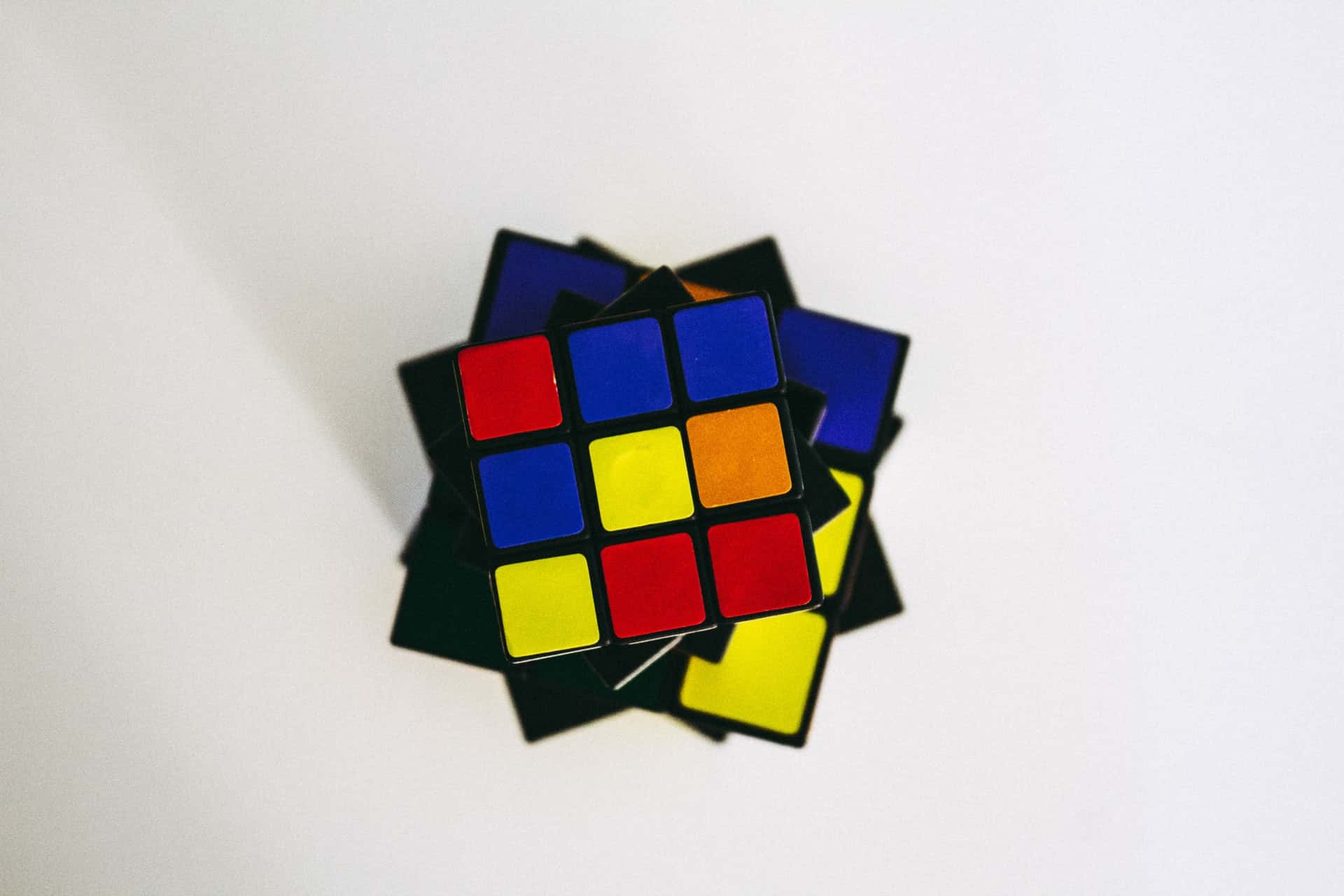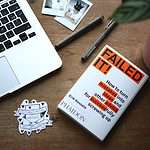How Can I Tell That I Really Know Words Actively – The Ultimate Test of Active Vocabulary

If you decide to learn a language, one of the most important decisions you can make is choosing the right learning strategy. This choice will either allow you to progress fast or break you mentally like a twig. It's the difference between moving forward in a Ferrari versus using your tears as a lubricant while you crawl.
In the past, I have written a lot about what factors affect vocabulary acquisition and how to tell decent or good language methods from the bad ones. However, people often mistakenly interpret their initial results with a given method as a sign that it truly works. It's like getting into an expensive SPA and seeing crap-stained walls with the graffiti "Steve was here". Disappointing, that is.
When it comes to increasing your passive vocabulary, it almost doesn't matter which strategy you choose - reading, learning flashcards, humming songs. They will all work, more or less, equally well.
However, testing whether your method of activating vocabulary is effective is way trickier. Let me show you how you can verify it and what you should be wary of.
How Can I Tell That I Really Know Words Actively
2 types of recall
Considering that we're interested in testing whether you know your words actively, we must test your recall. In other words, we must know whether you can retrieve a word in your target language when you signal it to your brain during a conversation.
The first thing you need to know is that there are two types of recall.
Free recall
Free recall is the process in which a person is given a list of items to remember and then is tested by being asked to recall them in any order. There is no natural context which might trigger the words you know.
Free recall often displays evidence of primacy and recency effects. Simply put, if you have just finished your learning session and you can feel dozens of words thrumming in your head, you have just experienced recency effect. The information that you are exposed to at the of your studies is easier to recall. The same goes for the information you have contact with at the beginning of your session - that's the primacy effect.
Cued Recall
Cued recall is when a person is given a list of items to remember and is then tested with cues to remember the material.
The word "cues", or contextual triggers, as I like to call them, are key concepts here.
Why Free Recall Is a Bad Measure of Your Ability to Remember
Anytime somebody switches to a new learning method, especially if their baseline was good, old-fashioned cramming, they might experience improved initial recall. Does it mean that they remember more long-term? Absolutely not, although but a few people are aware of this.
"Free recall exercises, are good measures of initial learning and remembering (Mayer, 2009)."
The word "initial" in this case is just a synonym for short-term learning. It gives you an illusion that knowledge has been acquired. However, once this illusion is confronted by precise measurements, it turns out that not much has been retained.
Free Recall and the Illusion of Knowledge
It's also a very common theme regarding many passive learning strategies like reading, restudying, highlighting, etc. The science knows beyond the shadow of the doubt that they are useless, but students still prefer them over battle-tested strategies like spaced repetition.
1. " For example, studies have shown that learners tend to prefer massing or cramming (table 1) over spacing because of the illusion that it is faster and more effective (Kornell, 2009). Technique Definition Massing Learning events are massed together in a short amount of time. Cramming Special form of massing; learning something intensely, often for the first time, in the days or hours before a test. Spacing Learning events are spaced apart over a longer period of time."
Source: Elizabeth Ligon Bjork, Robert A. Bjork - Memory (Handbook of Perception and Cognition

Photo by Honey Yanibel Minaya Cruz on Unsplash
2. "Despite the clear superiority of the recall method over the restudy method, students report they rarely use it when they study. One reason is that it is simply more work to practice facts by arranging a self-test and recalling them. But there is also something else going on. Studying by recalling just doesn’t seem as effective to students as reading back through their notes. Suppose we ask college students to respond to this scenario:
Students in two different classes read the same one-page essay. In Class A, the students were asked to write down as much as they could remember after they finished. In Class B, the students were given an opportunity to restudy the passage after they finished. After one week, all students were tested on their memory for the passage. Which class would you expect to have the higher test scores?
When memory researcher Jennifer McCabe posed a similar question to college students, she found an overwhelming preference for the second strategy, restudying, even though this approach is known to be inferior to the recall method in this situation. Why did the students get it wrong? Most likely, they based their answers on their own experience. They knew that when they finished reading material over and over, they felt confident in their memory. The facts seemed clear and fresh. They popped into mind quickly and easily as the students reviewed them. This is not always so when recalling facts in a self-test—more effort is often required to bring the facts to mind, so they don’t seem as solid. From a student’s point of view, it can seem obvious which method—restudying—produces better learning. Robert Bjork refers to this as an “illusion of competence” after restudying. The student concludes that she knows the material well based on the confident mastery she feels at that moment. And she expects that the same mastery will be there several days later when the exam takes place. But this is unlikely. The same illusion of competence is at work during cramming, when the facts feel secure and firmly grasped. While that is indeed true at the time, it’s a mistake to assume that long-lasting memory strength has been created."
Source: Elizabeth Ligon Bjork, Robert A. Bjork - Memory (Handbook of Perception and Cognition
The above echoes something I have been saying for years - if you simply assume that a learning strategy is effective just because you feel some initial benefits, it doesn't make it true. Unless you test it, it's better to suspend your opinion for some time.
Read more:
Example: intensive reading and initial learning
A good example of this phenomenon is intensive reading. It can certainly be a good and effective learning strategy for advances learners, but it's absolutely terrible for beginners.
Intensive reading led to more immediate vocabulary gains but spaced practice led to greater long‐term retention.
These "immediate vocabulary gains" are nothing more than a sign of initial learning. It shouldn't however be confused with long-term retention or, as I call it, the real learning. Sadly, most authors of language-related research don't seem to understand it.
What Is the Measure of Real Learning?

Photo by Gaelle Marcel on Unsplash
Once again, you can take almost any learning method and you will get (relatively) promising results short-term.
However, only transfer tasks, such as using words in a conversation are a good measure of true learning (Mayer, 2009).
The More You Know, the Less You Feel Your Knowledge
Because your knowledge is context-dependent and context-activated. You might know thousands upon thousands of words but you won't "feel" them. Some of them may even stay buried in your mind for years before an opportunity arrives to use them. If you learn how to say "fibroma" in your target language, don't expect to use it unless you encounter a situation wherein you are forced to utilize this word.
This phenomenon can be explained by the concept of habituation. The more we commune with certain stimuli, the less we react to them. In other words, the more you use a language, the less you feel that you really know it.
That's why some extremely competent language learners claim that they barely know a language at a B2 level, while pitiful beginners run around shouting that they are bilingual.
Read more:
Stress - a Crucial Factor That Needs to Be Taken Into Consideration
Every good language learning methodology can be encapsulated by the Marines' adage:
"Train as you fight, fight as you train"
You should always to train for reality in a manner that mimics the unpredictability and conditions of real life. Anything else than that is simply a filler. Unfortunately, regardless of how good your learning method is, it's almost impossible to incorporate a crucial factor for your ability to retrieve and know your words actively - stress.
Even if you can confidently reproduce words from ANKI at the comfort of your home, it doesn't mean that you will be able to use them in a conversation. Learning in such conditions is always, to some degree, detached from reality. You have time to contemplate the right answer, and everything feels pretty snugly and comfy.
Compare it with a typical conversation where:
Or to put it plainly, lying under your blankie and doing ANKI is a bit less stressful than trying to recall some word in a conversation while a crazy German local is sparging you with his saliva and screaming "Was?! WAS?!".
How Stress Affects Your Brain

Talking is stressful, especially for introverts. The worst thing that stress does in such situations is that limits the activity of your frontal lobe. This part of the brain is responsible for, among, others, emotional expression, problem solving, memory, judgment and language.
Once the cortisol floods your brain, your body goes into the survival mode. You don't need your cool problem-solving skill or silver tongue then. You need to wrestle some huge-ass bear or get the hell out of there. That's why you lose access to any memories and skills that are not well-activated as they are the ones that cost the most energy to retrieve. Your body prioritizes muscle at this point, not ATP-devouring thinking.
"The prefrontal cortex (PFC)—the most evolved brain region—subserves our highest-order cognitive abilities. However, it is also the brain region that is most sensitive to the detrimental effects of stress exposure. Even quite mild acute uncontrollable stress can cause a rapid and dramatic loss of prefrontal cognitive abilities, and more prolonged stress exposure causes architectural changes in prefrontal dendrites." Source: Stress signalling pathways that impair prefrontal cortex structure and function
At the same, stress doesn't seem to affect hippocampus so much. This region of the brain is typically linked to declarative memory, such as memory for events and facts (Squire, 2004; Squire & Zola, 1996). Interestingly, acute mild stress exposure has no effect on or can actually improve the memory consolidation functions of the hippocampus.
If your eyes glazed over after reading these quotes and you started questioning life choice that brought you to this article, let me assure you that they are extremely important. What these facts tell us is this:
"Non-consolidated information that hasn't been transferred to your long-term memory is extremely prone to any stress-related disturbances. On the other hand, long-term memories stored in your hippocampus are immune to mild and medium levels of stress".
That means that it doesn't matter how confidently you can recall words in the comfort of your home. If your vocabulary is not consolidated well enough, instead of producing fluent speech, it might turn out that you sound like a goat in the middle of the breeding period.
However, there is an easy way to fix it.
Want to Know Words Actively? Overlearn!
Items that are difficult to learn should be overlearned to ensure long term retention (Hulstijn, 2001).
Overlearning refers to practicing newly acquired skills beyond the point of initial mastery. In the context of languages, it means that even if you CAN recall a given word while doing ANKI, or in a conversation, but it takes you some time, you can still improve
How?
Unsurprisingly, you need to crank out more sentences with the word. Make sure that the contexts you use vary as well.
Try to recall the last time when you saw a baby (1,5 - 3-year old). Have you noticed that it keeps on repeating the same word over and over again in different sentences and collocations? That's what overlearning is all about. The easiest, or maybe the only way, to apply it properly is to talk to yourself. I dare say that no one would be patient enough to listen to this waffle while being sober.
It's enough that you find a question and start answering it in a very monotonous way while constantly reusing a problematic word.
Q: Do you like apples?
A: Yes, I like apples. Apples are sweet. I like sweet apples, and I eat them often. I don't eat them often when I can't buy them. I but them in a shop, however, if I don't buy them, then I don't eat them.
You get the gist. Children are a wonderful example of overlearning in action. For example, not that long time ago, my son got so excited by getting a piece of cheese that he repeated this word 53 times (yes, I counted).
53 freaking times. It made me feel lazy and question the effort I put into learning!
How Can I Tell That I Really Know Words Actively - Summary
Most language learning methodologies are plagued by one fatal flaw. They make you believe that being able to reproduce a word in the comfort of your home is equivalent to really knowing it.
Unfortunately, the truth is more complicated. First of all, the ultimate test of your active vocabulary is always a conversation. If you can comfortably recall your newly acquired vocabulary, then you can be relatively confident that your approach works. I say "relatively" because unless you test a given method, you can't be sure that it's precisely what makes you recall words effectively. Most of the time, it's the results of combining a couple of learning strategies.
What's more, if your learning method doesn't involve context and active transfer of your vocabulary between contexts, you can rest assured that it sucks.
Last but not least, if your learning strategy does involve context and active information transfer them, you should put more effort into overlearning those problematic words.
Keep in mind that this is one of those situations where individual differences kick in. Some people are more immune to stress than others. As a consequence, the degree to which you will have to overlearn words will often depend on your genetics and environmental conditioning.
Done reading? Time to learn!
Reading articles online is a great way to expand your knowledge. However, the sad thing is that after barely 1 day, we tend to forget most of the things we have read.
I am on the mission to change it. I have created over 25 flashcards that you can download to truly learn information from this article. It’s enough to download ANKI, and you’re good to go. This way, you will be able to speed up your learning in a more impactful way.











Hi, thanks for the article!
do I understand correctly: there is now method to check the size off your ACTIVE vocabulary?
There are some online resources to check vocabulary size, but I guess they check only passive one, right?
So, no way to objectively track progress in this field?
Thanks
Hi! No problem 🙂 There are some tests that can do that, but I would say that their reliability is usually low to very low. Passive vocabulary tests are much more reliable.
No, there is no good way to measure your active vocabulary.
“The More You Know, the Less You Feel Your Knowledge”
Am I going to feel always like a fool? I believe it relates not only to languages but all realms of knowledge. How can I know that I am objectively decent, good, or master at something?
Yes, it definitely relates to all realms of knowledge. I think that one of the best ways to tell whether you’re good at something is to compare yourself with others who deal with the same area of knowledge.
As for feeling like a fool, I am not sure I would fight this feeling! Learning new things is all about feeling foolish and accepting it and believing you can get better – this is what I prefer to concern myself with:)
Great insights! As always to be honest haha. Enjoy each and every one of your articles! I think there was a typpo in here
“Non-consolidated information that hasn’t been transferred to your long-term memory is extremely prone to any stress-related disturbances. On the other hand, long-term memories STORIED (I believe you meant stored) in your hippocampus are immune to mild and medium levels of stress”.
Thank you, Jose! You’re right – that’s a typo 🙂 Fixed it and thank you for catching it!:)
Cool article!
Now I can tell the difference between knowing language during repetition process and being able to communicate in conversations. And I fully agree that conversation is of prime importance when it comes to active usage.
Thanks!
My pleasure! Glad you liked it 🙂
A great read Bartosz and one that’s especially important at my current stage!
Glad to hear it, Ahmed! 🙂